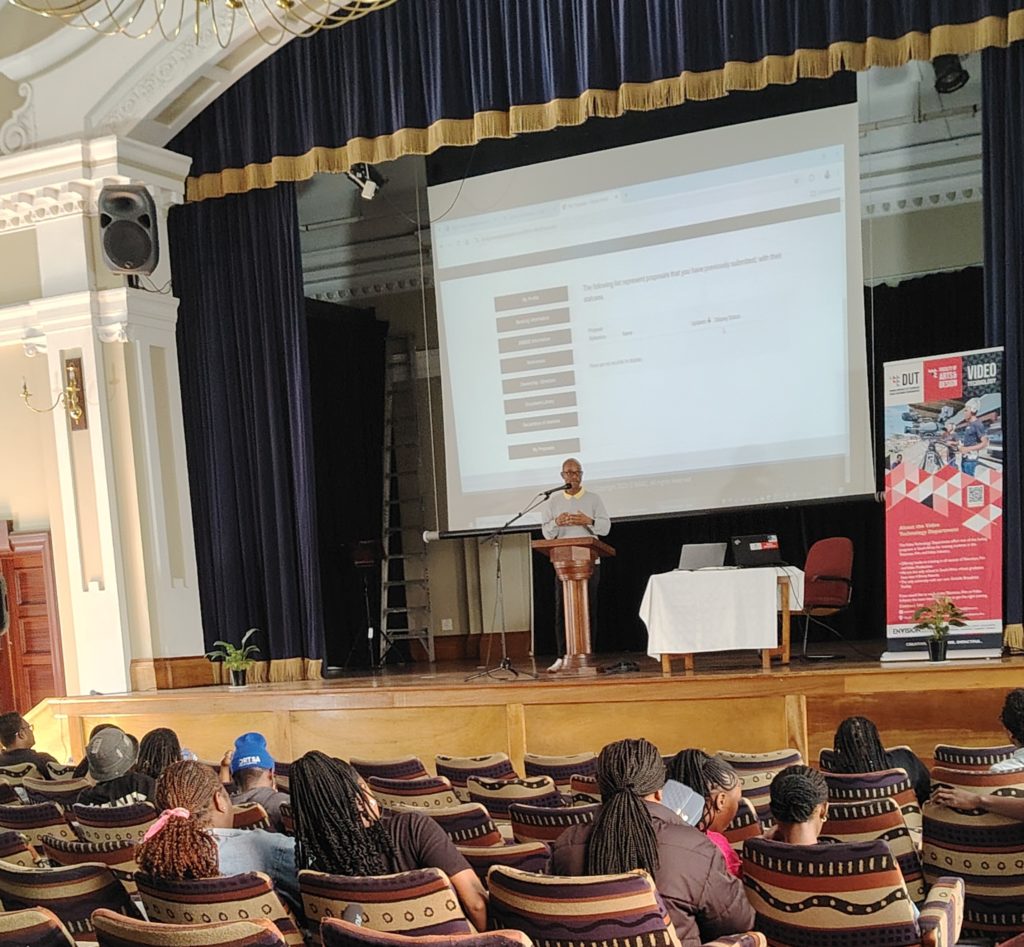By Awande Mabizela and Nosihle Mthembu
The Durban Film Office (DFO), the South African Broadcasting Corporation (SABC), the Companies and Intellectual Property Commission (CIPC) and Film Publication Board (FPB) recently held a Film Industry Development Workshop for Durban University of Technology (DUT) Video Technology students at the City Campus’s Arthur Smith Hall to bridge the gap between theoretical education and the film industry practice.
The Durban Film Office said that it had championed the initiative so that the students know about the workings of the industry and the prospects.
Fezile Peko, the DFO office project manager, said: ”We said to ourselves let’s do something about the students, especially those in their second or third year, because there are many spaces and opportunities in the industry that they can tap into.
“We realised that the students had to be given an insight into what is expected of them once they enter the field because we, as the Durban Film Office, are responsible for the development of the industry, hence, we saw it fit to look at the upcoming filmmakers.”
Students were educated about the various entities present and their roles in the industry. Mojafa Khoza, a senior educational specialist at CIPC, gave an outline of the CIPC, its purpose and functions. ”The CIPC is an agency of the Department of Trade and Industry. The CIPC registers companies and intellectual property rights. We offer service delivery and access, innovation and creativity, and business regulation and reputation.”
Raajesh Vishnu, the regional co-ordinator for FPB, explained how the FPB regulates online content and determines its safety for consumption.
KwaZulu-Natal SABC regional operations manager Simphiwe Ngcobo spoke about the financial constraints that prevent 100% commissioning of films by the national broadcaster.
He gave guidance on content submission for independent contractors. ”This workshop opens up the minds of students and gets them in touch with the reality of the industry. You can learn all the theory, but when you hear it from a practical perspective, it may make you re-evaluate.”
He added that the workshop was significant to the SABC and held potential benefits for the broadcaster. ”This workshop is very important, as it makes sure we get content from an informed perspective, as we have prepared you in terms of what is expected from those who want to submit content to us. It decreases the load on us when it comes to training interns and it also improves the quality of submissions.”
Nisha Naidoo, a Video Technology lecturer, said: ”It’s a wonderful workshop. It exposes students to the world of film and television and how they can navigate the industry.”
Students expressed positive sentiments about the workshop, emphasising that it had benefited them.
Mbuyiselo Mbonambi, a third-year student, said: “It helped me understand more about the business side of the film industry.”
Another third-year video technology student, Lelethu Gam, said that the workshop has readied them to submit their work for film festivals. ”It’s beneficial for us (students), because we learn more about the industry and its requirements, and if we want to submit our films for the film festival, we know what to do.”


